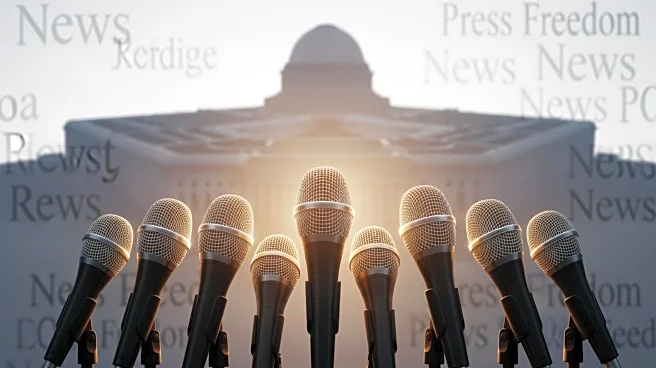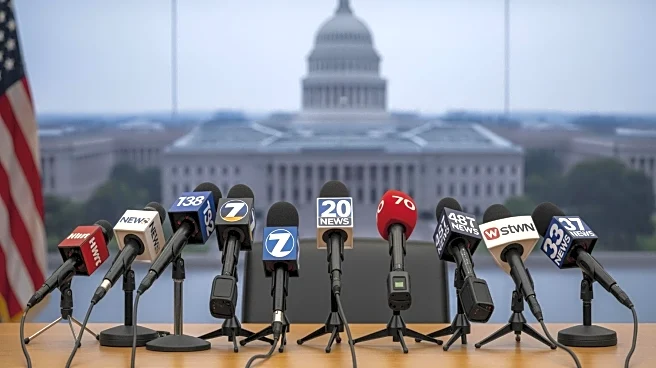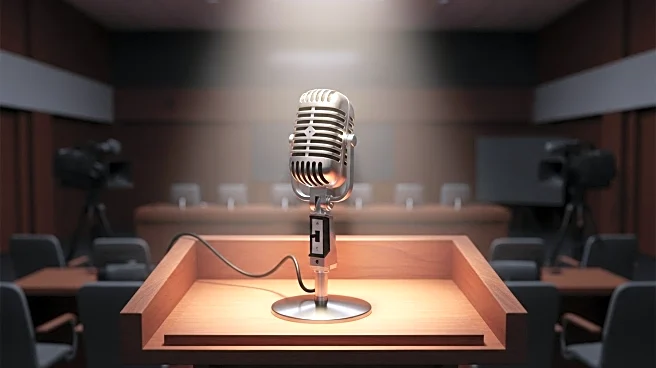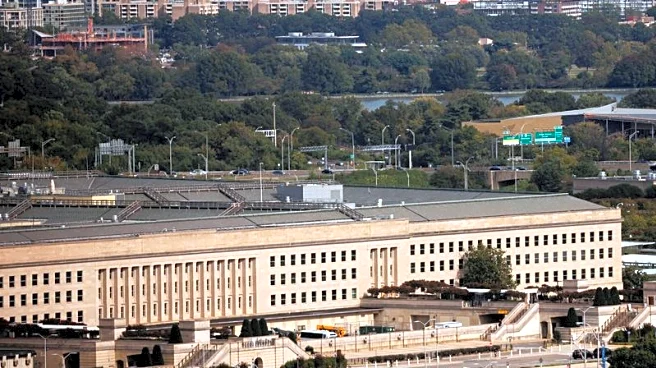What's Happening?
Several major US news organizations, including The New York Times, The Washington Post, and CNN, have refused to comply with new Pentagon reporting guidelines that require military personnel to approve
information shared with the media, even if it is unclassified. The policy, announced by the Department of Defense, mandates that reporters who do not sign the agreement by a specified deadline must surrender their press credentials and vacate Pentagon facilities. The guidelines have been criticized for potentially undermining press freedom, with media outlets arguing that the restrictions would hinder their ability to report on national security issues. The Pentagon Press Association has expressed concern that the policy sends a message of intimidation to Department of Defense employees, warning against unapproved interactions with the press.
Why It's Important?
The refusal of major news outlets to sign the Pentagon's new reporting guidelines highlights significant concerns about press freedom and transparency in government operations. The policy could impact the ability of journalists to report on critical national security matters, potentially limiting public access to information about military activities and decisions. This development may also affect the relationship between the media and the government, as it challenges the balance between national security and the public's right to know. The move could lead to increased scrutiny of the Pentagon's actions and policies, as media organizations seek alternative ways to cover military affairs without direct access to Pentagon facilities.
What's Next?
As the deadline for signing the Pentagon's new policy approaches, it remains to be seen how the situation will evolve. Media organizations that refuse to comply may explore other avenues for reporting on military issues, potentially increasing reliance on sources outside the Pentagon. The Department of Defense may face pressure to reconsider or modify the guidelines in response to widespread criticism from the press and advocacy groups. Additionally, the policy could prompt legal challenges or legislative action aimed at protecting press freedom and ensuring transparency in government operations.
Beyond the Headlines
The Pentagon's new reporting restrictions raise broader questions about the role of the media in holding government accountable and the potential consequences of limiting press access to information. The policy may set a precedent for other government agencies to impose similar restrictions, further complicating the media's ability to report on public affairs. This development also underscores the ongoing debate over the balance between national security and the public's right to know, highlighting the need for clear guidelines that protect both interests.













